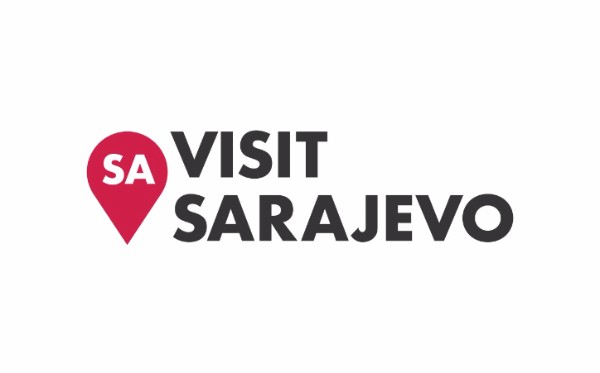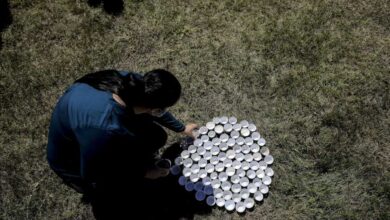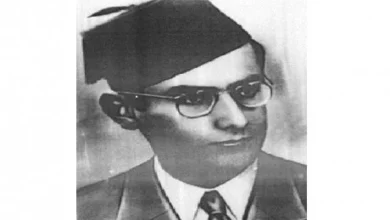My ramadan in Sarajevo
Introduction
Because of the diversity of experiences in the United States, I think it’s a good idea to give readers a brief overview of where I’ve lived.
I was born and raised in and near a medium-sized Midwestern city south of Chicago. My community was in many ways an example of what make’s America so special. Though 20-30 families large, our community included immigrants from the Indian Subcontinent, Turkey, Sudan, the Arabian Peninsula, Northern Africa, Malaysia, Nigeria, and Iran. This blessing allowed me to see Islam’s diverse religious and cultural traditions at a very young age.
Even my own home blended cultural traditions. As with Bosnians, some parts of my cultural heritage comes from Turkey through my mother. However, as my mother grew up in India and my father in Bangladesh, much of my experiences centered on those cultures.
 Since high school, I have lived all over the US and the world before coming to Bosnia nearly four years ago. This includes New York, the Bay Area of California, Chicago, Los Angeles, and the Southern United States.
Since high school, I have lived all over the US and the world before coming to Bosnia nearly four years ago. This includes New York, the Bay Area of California, Chicago, Los Angeles, and the Southern United States.
Ramadan in America: Blending Cultures
Being a minority meant that I associated being a Muslim with a place and a time. Such places included my mosque and my home, but also included the warm homes of my Muslim friends. The time was most often during the weekends. Outside of these times and places, Islam was something I carried in me. My parents raised me with a great deal of pride in our traditions, so I had no trouble telling friends, colleagues, and neighbors about my beliefs. At the same time, however, it was not something I would bring up unsolicited.

During my childhood, Ramadan was very much about food. For sahoor, it meant a drowsy consumption of flavors from the Indian subcontinent, some subtle Turkish influences, a healthy dose of American staples, and lots of water. My mom would fry up ‘pakoras,’ which are made from flour and can be stuffed with different delicious things. We would also eat spicy minced meat dishes, Turkish dolma, fried okra, and other Indian cuisine with a fried flat bread called ‘paratas’ or with plain rice. Some mornings, I would crave sugary American cereals, and other mornings a simple egg with toasted sandwich bread was more than enough. And as with every family, the proportion of the previous night’s leftovers eaten during suhoor increased as the month went on.
Our small Muslim community prayed taraweeh primarily on the weekends (though as the community grew, we were slowly able to host these prayers during the week). Everyone would arrive together, attend religious classes, and break our fast together. My masjid is where I learned to crave an Arab dish called ‘makloobah’ and also where I ate many slices of pizza.

It’s sad for me to see the open hostility that some American Muslim youth now endure. I did not have such experiences in the US while growing up. Though my mosque was occasionally vandalized, I remember my classmates and teachers being incredibly supportive of my fasting and daily prayers. Some would try not to eat in front of me, and during Ramadan, teachers would even excuse me from the lunchroom to read in the library. I did not seek to avoid gym class or other physical activities, though I think the school would have found a way to help if it became necessary.
As I grew more mature, my focus during Ramadan turned further inwards, and I was drawn to communities and people who could help me develop into a better person or otherwise improve my iman. In college, this would include formal and informal halqas and lectures covering topics on religion. Some universities, like the University of Illinois and UCLA, had large, well-organized student and community resources available for that purpose. Smaller Muslim student groups arranged fantastic activities, but these were far more informal.
This diversity of peoples and experiences exposed me to the beautiful variations in our religious traditions. I had Shia friends who would wait a bit longer after sunset to eat. The first time I realized that breaking fast with a date is Sunnah was with my Arab friends. It was during taraweeh that I learned how witr prayer can be performed in several ways, and that the way I perform it is from the tradition of the Hanafis. And speaking of Hanafis, I later came to realize that the Hanafi School of Islamic law that I observe is from the Indian subcontinent, and that my friends from Turkey, Syria, and even Bosnia had slightly different traditions.
Comparing Experiences

Bosnia is the first and only Muslim country in which I have enjoyed Ramadan. AlhamduliAllah, it has been an overwhelmingly wonderful experience. Feeling the spirit of Ramadan in the US is a bit diminished since it’s not observed by as many people. In Bosnia, people’s excitement during this month is palpable, and signs of the Holy Month’s arrival—from the sound of the Qur’an in mosques to the small changes in your co-workers’ behavior—remind you to be a better version of yourself. In other words, in parts of Bosnia, there is no time and place for Ramadan. Ramadan is everywhere, and that has been a wonderful experience.
Through I have far fewer friends in this country, I am very thankful for the ones I do have. Through them, I’ve been able to appreciate that Bosnians generally have a way of doing things. The tradition of eating samun with topa, for example, is almost universal. Beyond culinary traditions, my community in the US would break our fast with some refreshment—like fruit and juice—and then carry on with the full meal after prayer. In Bosnia, I’ve noticed that people tend to pray maghrib after the full meal.
Another interesting difference in Bosnia is that the taraweh prayers are much shorter because of the macabella tradition. In most other cultures, I’ve observed that at least one juz is usually performed during taraweh, so it is not uncommon to pray for several hours. In addition, the Bosnian tradition of praying 4 consecutive rakats during taraweeh was unusual for me. While views differ over 8 or 20 rakat, I had always prayed taraweeh 2 rakats at a time. As you can imagine, my first experience during a Bosnian taraweeh was very confusing.
I had the opportunity to find places in Bosnia where my experiences as a minority were shared. Through the auspices of some of my co-workers and university friends, I was able to join a group of people who visit returnees in the RS and other parts of Bosnia with the singular objective of sharing iftaar with them. The difficult conditions for our brothers and sisters—and a general lack of support from people in Sarajevo—were saddening to me. It is my sincere hope that organized efforts to support these minority communities, especially during the Blessed Month, can continue and grow. Just meeting and breaking bread with returnees can benefit all involved, as I left inspired by their resilience and the strength of their faith. I hope readers will also reach out and be enriched by this experience.
Author: Omar Ben Yunus
#sarajevo_in_ramadan
Akos.ba




